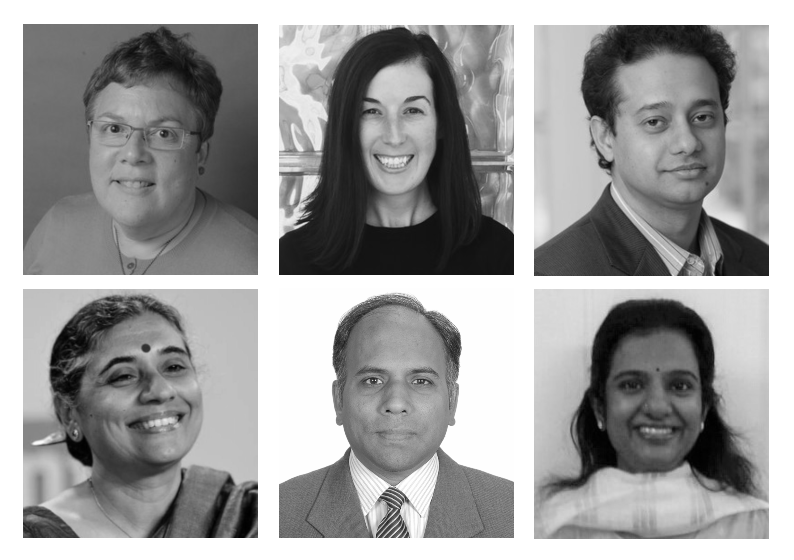Yusuf Hamied Fellowship Winners 2019-2020

Building on the mission to strengthen public health research on India, six faculty members from Columbia University and Indian institutions have been awarded the prestigious Yusuf Hamied Fellowship of 2019-2020. The principal goal of this program, a joint undertaking between the Center and the Mailman School of Public Health, is to develop a robust research network, stimulate new collaborations, especially in areas that have critical gaps in health research, and produce scientific publications in public health that will help improve health outcomes. In its second year, the Fellowship has been awarded to projects focusing on occupational health, environmental health, non-communicable diseases, and aging in India.
For the year 2019-2020, awardees of the Yusuf Hamied Fellowship from the Mailman School of Public Health include:
Pam Factor-Litvak, Professor of Epidemiology, Columbia University Medical Center
Proposal Title: Building Capacity for Studies of Child Development in the Slum Environment
Proposal Brief: This project will study school readiness and assess behavior in children under five in low-income urban neighborhoods, using different scales of neurodevelopment assessment. It aims to build capacity in academia on methods to study child developmental outcomes and strengthen methods to obtain and store appropriate biological specimens.
Jeanine M. Genkinger, Associate Professor, Department of Epidemiology
Proposal Title: Investigating Modifiable Lifestyle Drivers of Cancer Risk In Indian Populations
Proposal Brief: This project will focus on identifying key areas of susceptibility of cancer risk with a special focus on modifiable lifestyle factors like diet and nutrition. With this research, Dr. Genkinger aims to study associations between dietary and lifestyle patterns and cancer risk in India.
Rupak Shivakoti, Assistant Professor of Epidemiology, Mailman School of Public Health
Proposal Title: Impact of Diet, Inflammation and Microbiome on Risk of Cardiometabolic Disease in India
Proposal Brief: In order to identify potential dietary or microbial interventions and reduce inflammation and cardiometabolic risk, Dr. Shivakoti’s project will study the relationship of dietary intake and gut microbiota in India.
For the year 2019-2020, fellowships have been awarded to the following faculty members from Indian institutions:
Rama Baru, Professor, Centre of Social Medicine and Community Health, Jawaharlal Nehru University
Proposal Title: Continuum of Care for Dementia in Older Persons: Family, Community and Health Services
Proposal Brief: Dr. Baru’s project will undertake a review of the state of continuum of care for dementia. The key areas that Dr. Baru aims to study include dementia incidence, a review of public and private sector health systems for dementia care, and identification of actors and institutions that provide support at home and at the community level for persons suffering from dementia.
Rajan Patil, Professor, School of Public Health, SRM University
Proposal Title: Assessment of Occupational Lead Exposure and Health Hazards among Bronze Metal Sculptors and their Families in Southern India
Proposal Brief: This project aims to study occupational exposure to lead by bronze sculptors and the health hazards associated with it. Dr. Patil’s research focuses on assessing the morbidity and respiratory status of sculptors continuously exposed to smoke and fumes in Tamil Nadu, India.
Krithiga Shridhar, Epidemiologist, Public Health Foundation of India
Proposal Title: Investigating Environmental Factors for Breast and Gallbladder Cancer Risk in India
Proposal Brief: Dr. Shridhar’s project aims to develop and validate an ‘exposure intensity algorithm’ in Indian populations for environmental exposure of pesticides, including occupational exposure. Through her project, she aims to investigate if the exposure is associated with risks of breast cancer (among women) and gallbladder cancer (women and men).